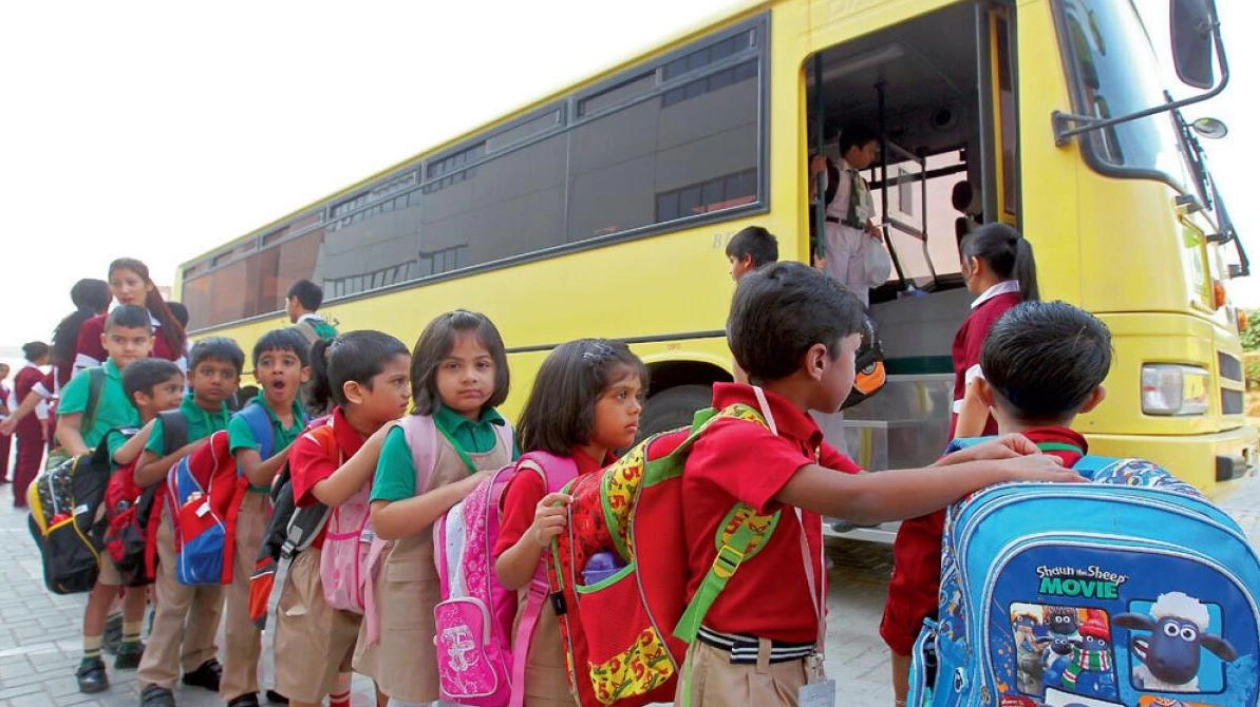Nine-year-old Naya Osama endures a nearly two-hour daily commute to her school, which is just over 5 km from her home in Al Nad, Sharjah. The fourth-grader must wake up at 5:50 am to catch her school bus, which arrives at 6:45 am. “Her school is 5.6 km away, in the University City Road Industrial Area 6, and we pay Dh5,500 for the bus fee. But it’s the lengthy bus ride that concerns us the most. It takes nearly two hours for the bus to cover such a short distance because it picks up other children along the way. As a working mother, I can’t do the school runs, so the bus is my only option,” explains Naya’s mother, Rehab Abdullah.
“Drop-off time varies daily,” Rehab adds. Although her school ends at 4:00 pm, Naya doesn’t reach home until almost two hours later. “The bus leaves school at 4:30 pm, and she gets home around 5:30-6:00 pm, depending on traffic,” says the Jordanian expatriate. Rehab advises her daughter to stay awake on the bus due to alarming stories about children being left behind. “However, she often dozes off due to exhaustion. She arrives home tired and has little time to eat. She finishes her homework and goes to bed.”
While school buses are the only option for some families, they aren’t always ideal. “For one, the child gets very tired. They spend almost two hours on the bus with no access to a washroom, which can lead to health issues. Moreover, I’m always anxious because there’s no fixed time for her to reach home,” Rehab notes. Similarly, Nighat Waheed’s daughter Aiza, in Year 8, spends up to three hours commuting to and from school for a 15 km distance. “Aiza’s bus arrives around 5:20 am, and a few children are already on board. School starts at 7:15 am. They arrive early and wait until the gates open. The buses must stick to their schedules, and it takes an hour to return from Al Qusais to Sharjah,” Nighat explains.
“Students often fall asleep on the bus due to exhaustion,” Nighat says. Her daughter frequently nods off during both morning and afternoon commutes. “The long commute isn’t just due to distance; traffic congestion and bottlenecks in certain areas also contribute. There are significant delays on Eitihaad Road during peak hours. Despite this, I believe school buses are a safer option for parents,” says the Pakistani expatriate in the UAE. Nighat spends Dh4,000 annually on transportation and shares that her husband wanted to drive their child to school every morning. “However, the school refused. They said we can’t choose the option of only dropping her off in the morning; we must opt for both pick-up and drop-off service.”
Doctors warn that long school commutes can adversely affect children’s health. Dr. Sharafeldin Ibrahim, Specialist Orthopedic Surgery at Burjeel Day Surgery Center, Al Shahama, states, “Evidence shows that long commute times negatively impact children’s well-being. Prolonged sitting on school buses can cause physical discomfort, including muscle stiffness, back pain, and poor posture due to cramped seating. Children may also experience fatigue and lack of concentration in class, leading to poor academic performance.” Some medical professionals also warn that urinary tract infections (UTIs) are more likely in children who hold their bladder for extended periods, such as during long bus rides.
Dr. Ignatiius Edwin D’souza, consultant pediatrician and chair of pediatrics and neonatology at Thumbay University Hospital, advises, “Extended urine retention can cause bladder distention and encourage bacterial growth, leading to infections. Extended sitting and restricted access to toilets can worsen constipation, increasing the risk of UTIs. Children on long bus commutes often experience nausea and vomiting due to motion sickness.” He recommends encouraging children to eat a light meal before traveling and to use the restroom before boarding the bus in the morning and after school. “This helps minimize urinary discomfort and ensures they are more comfortable throughout and after their commute,” D’souza adds.






